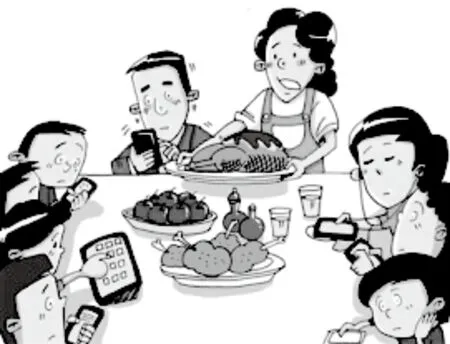名词性从句必备知识、考点分布和备考策略
河南
众所周知,复合句是历年高考的高频考点。由于名词性从句内容多、考点细,考生容易出错,试题具有较高的区分度,所以一直受到高考命题人的青睐。本文拟对名词性从句的必备知识、高频考点进行系统的梳理和分析,并提出相应的复习备考策略。
一、名词性从句必备知识
(一)名词性从句的概念、功能和分类
名词性从句属于复合句的一种,其作用相当于名词词组,在复合句中作主语、表语、宾语和同位语。根据它在句中的不同语法功能,名词性从句可分为主语从句、表语从句、宾语从句和同位语从句。
(二)名词性从句的连接词
名词性从句的连接词包括三类:
1.连词that
that本身无意义,只起连接作用。连接宾语从句时,that通常可以省略。但在连接主语从句、表语从句以及同位语从句时,that通常不可以省略。连接两个并列的宾语从句时,第二个从句前的that不能省略。
2.连接词whether和if
连接词whether和 if都有“是否”之意,表示从句的内容具有不确定性。由一般疑问句变成的名词性从句,常用whether来连接,它在从句中不充当任何成分。在宾语从句中,whether和if均可使用,但whether 常与or not连用。在介词后的宾语从句常用whether连接。在其他名词性从句中,只能用whether,而不用if。
3.连接代词和连接副词
由特殊疑问句变来的名词性从句,常用连接代词和连接副词连接。连接代词有:what/whatever, who/whoever,whom/whomever, whose/whosever, which/whichever。连接副词有:when/whenever, where/wherever, how/however, why,because。
(三)名词性从句的语序
所有的名词性从句均采用陈述语序。例如:
What we can learn from the ant philosophy is: Never give up, look ahead, stay positive and do all you can.
The problem was whether we should put off the sports meeting.
People have heard what the president has said; they are waiting to see what he will do.
Then arose the question where we could get so much money.
(四)名词性从句的时态
在通常情况下,名词性从句的时态应与主句的时态保持一致,如果主句为一般现在时或现在完成时,从句可以用任意一种时态;如果主句为一般过去时,从句必须用过去的某种时态。例如:
It was reported that there would be a lunar eclipse(月食)on Sunday night.
但是,如果从句陈述的是客观规律或人们所共知的事实,从句仍可用一般现在时。例如:
Our science teacher told us that the earth goes around the sun.
【注意】如果名词性从句中含有动词require, request,suggest, advise, propose, recommend等或它们对应的名词requirement, suggestion, advice, proposal, recommendation等时, 谓语常用“should + 动词原形”,且should 可以省略。例如:
The doctor recommended that you (should) not swim after eating a large meal.
(五)名词性从句的易错点
1.it 用作形式主语
为避免句子头重脚轻,常把形式主语it放在句首,而把主语从句放在句末。含有it作形式主语的句式有以下五种:
①It + be + 名词(短语)+ that从句
常用的名词(短语)有:duty, fact, pity, shame, question,surprise, common knowledge, good news,no wonder等。例如:
It is no wonder that the game has become more and more popular around the world.
②It + be + 形容词 + that从句
常用的形容词有:clear, certain, essential, evident,important, interesting, natural, necessary, strange, obvious,true, wonderful, possible, likely, unusual, vital, worthwhile等。例如:
It’s natural that you (should) forget it.
【注意】如果形容词为important, natural, necessary,natural, funny, strange, surprising, astonishing等,从句表示惊奇、不相信、惋惜、理应如此等语气,谓语常用“should+动词原形”,且should可省略。例如:
It is essential that we (should) have a balanced diet.
It’s strange that Peter (should) behave so rudely.
③It + be + 现在分词 + that从句
常用的现在分词有:astonishing, disappointing,encouraging, exciting, frightening, surprising, inspiring等。例如:
It is amazing that all fishes live together peacefully.
④It + be + 过去分词 + that从句
常用的过去分词有:admitted, acknowledged, believed,considered, decided, discussed, demanded, estimated, expected,hoped, known, proved, reported, required, said, suggested,thought 等。例如:
It is believed that this project will be a great success.
⑤It + 特殊动词(短语)+从句
常用的动词(短语)有:seem, appear, happen, matter,occur to sb., strike sb., make no difference等。例如:
It makes no difference to me whether you will leave or stay.
2.it 用作形式宾语
如果动词find, believe, think, feel, consider和make之后的宾语从句带有名词或形容词作宾语补足语,为保持句子结构平衡,常用it作形式宾语,而把宾语从句放在句末。it只起代替作用,本身无词义。例如:
We consider it necessary that we should lend them a helping hand.
3.同位语从句与定语从句的区别
虽然同位语从句与定语从句比较相似,但是它们之间有本质的区别:同位语从句常跟在表示信息、观点、主张、事实等(如:idea, view, thought, order, suggestion, news, truth,hope, promise, answer, belief, doubt, fear, problem, proof,question等)抽象名词之后,连接词在从句中不充当成分,从句是对前面的名词进行解释和说明,而不是修饰和限定。定语从句则是对某一名词进行修饰和限定,关系代词在从句中充当句子成分。例如:
We heard the news that our team had won.(同位语从句)
The news (that/which) the headmaster told us was exciting.(定语从句)
4.主语从句与定语从句的区别
下面两个复合句虽然句意相同,句子结构相似,但却属于两种从句。
It is known to all that Shanghai has a modern and fashionable atmosphere.(主语从句)
As is known to all, Shanghai has a modern and fashionable atmosphere.(非限制性定语从句)
二、高考对名词性从句的考查
(一)单选试题对名词性从句的考查
单项填空对四种名词性从句均有考查。近年的考查情况具体如下:
1.主语从句
(1) Every year,___________ makes the most beautiful kite will win a prize in the Kite Festival.(2017年北京卷第23题改编)
【分析】分析句子结构可知,从逗号到beautiful kite为主语从句,由于空白处在动词之前,从句中缺少主语,故填复合代词whoever,表示“无论谁”。
(2) It is often the case___________ anything is possible for those who hang on to hope.(2016年江苏卷第21题改编)
【分析】句意为:通常情况是这样的,对于那些怀揣希望的人来说,一切皆有可能。本题考查主语从句,it为形式主语,代替that引导的从句,由于从句的句意完整,不缺句子成分,故空白处填that。
(3)__________ we understand things has a lot to do with what we feel.(2015年北京卷第35题改编)
【分析】句意为:我们理解事物的方式与我们的感觉有很大的关系。从句首到things为主语从句。因为从句中主语、谓语和宾语齐全,缺少状语,故填连接副词How。
(4) __________ Li Bai, a great Chinese poet, was born is known to the public, but some won’t accept it.(2015年江苏卷第25题改编)
【分析】句意为:人们都知道中国诗人李白出生在哪里,但是一些人拒绝接受这个事实。从句首到was born为主语从句,因为从句中主语、谓语齐全,缺少状语,故填连接副词Where。
2.表语从句
(1) Without his support, we wouldn’t be___________ we are now.(2018年北京卷第11题改编)
【分析】句意为:要是没有他的帮助,我们不可能走到现在的位置;或者为:要是没有他的帮助,我们不会成为现在的我们。从空白处到句末为表语从句,表语从句中缺少表语,故可填连接副词where或连接代词who。
(2) This is ______ my father has taught me—to always face difficulties and hope for the best.(2018年北京卷第15题改编)
【分析】句意为:这就是父亲教给我的东西——勇于直面困难,充满希望。从空白处到me为表语从句,从句中动词taught缺少宾语,故填连接代词what。
(3) By boat is the only way to get here, which is___________ we arrived.(2018年江苏卷第21题改编)
【分析】句意为:坐船是到达这里的唯一途径,我们就是这样来的。空白处到句末为表语从句,从句中主语、谓语齐全,缺少方式状语,故填how。
(4) The most pleasant thing of the rainy season is_one can be entirely free from dust.(2016年北京卷第29题改编)
【分析】句意为:雨季最令人高兴的是它能洗涤一切灰尘。从空白处到句末为表语从句,从句句意完整,且不缺少句子成分,故填连接词that。
3.宾语从句
(1) The gold medal will be awarded to _________ wins the first place in the bicycle race.(2018年天津卷第9题改编)
【分析】句意为:这个金奖将授予任何在自行车大赛中荣获第一的选手。从空白处到句末为介词to的宾语从句。因从句中缺少主语,故填复合连接代词whoever,相当于anyone who。
(2) She asked me___________ I had returned the books to the library, and I admitted that I hadn’t.(2017年天津卷第4题改编)
【分析】从空白处到逗号之间为宾语从句,根据句意,应填连接词whether/if,表示“是否”。
(3) Jane moved aimlessly down the tree-lined street, not knowing_____________ she was heading.(2017年北京卷第26题改编)
【分析】句意为:简漫无目的地走在林荫道上,不知道往哪里去。从空白处到句号之间为宾语从句,从句不缺少句子成分,再结合句意,应填连接副词where。
(4) We choose this hotel because the price for a night here is down to $20, half of____________ it used to charge.(2017年江苏卷第26题改编)
【分析】句意为:我们选择住在这家宾馆是因为它把住宿价格降到一夜20美元,是平时收费的一半。本句中,介词of后为宾语从句,从句中的动词charge缺少宾语,故填连接代词what。
4.同位语从句
(1) The manager put forward a suggestion ____ we should have an assistant.There is too much work to do.(2016年天津卷第11题改编)
【分析】句意为:经理提议我们应雇一个助理,因为有太多的工作需要做。从空白处到第一个句号为同位语从句,解释suggestion的内容。从句句意完整,不缺少句子成分,故填that。
(2) —Is it true that Mike refused an offer from Yale University yesterday?
—Yeah, but I have no idea ______ he did it; that’s one of his favorite universities.(2014年重庆卷第12题改编)
【分析】句意为:Mike真的拒绝了耶鲁大学的offer吗?是的,但是我不知道他为什么会这样做。I have no idea之后为同位语从句,根据句意,应填连接副词why,表示原因。
(二)语法填空题对名词性从句的考查
近年的语法填空题主要考查宾语从句,例如:
As natural architects, the Pueblo Indians figured out exactly _____thick the adobe walls needed to be to make the cycle work on most days.(2015年全国卷Ⅱ第70题)
【分析】从空白处到句末为宾语从句,空白处填连接副词how修饰形容词thick,引导宾语从句,在从句中作表语,故填how。
三、名词性从句的备考策略
近年的高考试题非常重视在语境中考查基础语法知识,名词性从句也不例外。只有夯实基础知识,才能为培养考生的应试技能打下良好的基础。因此,教师应从系统地巩固基础知识做起,帮助考生扎实掌握基础知识,逐步发展语言能力。具体做法如下:
(一)系统梳理和训练核心考点
在复习备考阶段,切忌老师过多讲解,学生练习时间过少。教师应采用以练代讲的方式,对名词性从句的核心考点进行系统训练,让学生在练习中巩固知识、提升能力。
(二)关注难点和易错点
同位语从句、主语从句与定语从句的区别是教学的难点,由于没有抓住这些句式的特点,学生在做题时频频出错。连接词的辨析是学生的易错点,教师可以采用经典的高考题,选取相似结构进行对比,以提高学生的甄别能力。
1.The exhibition tells us__________ we should do something to stop air pollution.
2.The exhibition tells us__________ we should do to stop air pollution.
【分析】句1中的宾语从句主谓宾齐全,因此空白处可填why/that/how。句2 中的宾语从句缺少宾语,因此空白处应填what。
(三)注重总结学习策略,提升考生能力
名词性从句中连接词的选择与句子成分密不可分。教师应从训练学生对词性和词类基本用法的掌握入手,先训练七种类型的简单句,再过渡到对复合句的训练。引导学生关注句子结构,正确划分句子成分,然后正确选择连接词。
(四)训练改写句子,提升同义句转换的能力
The villagers are in need of food.→ What the villagers need is food.
Tom overslept, so he came late.→ The reason why Tom came late was that he overslept.
The things that happened that day impressed me deeply.→I was deeply impressed by what happened that day.
I was attracted by Mary’s words.→I was attracted by what Mary said.
I don’t know how we can get there in time.→ Our problem is how we can get there in time.
(五)采用语境化的教学方式
教师要为学生提供使用语言表达思想的语境,鼓励学生在具体的语境中,正确使用语法规则,逐步提升语用能力。 教师可以在课堂上采用看图说话的形式,引导学生尝试使用名词性从句。 例如:


We can see some people are busy taking photos when a man is struggling in the water.(宾语从句)
What we can see from the picture is that everyone at the table is playing with their smart phones.(主语从句、表语从句)

